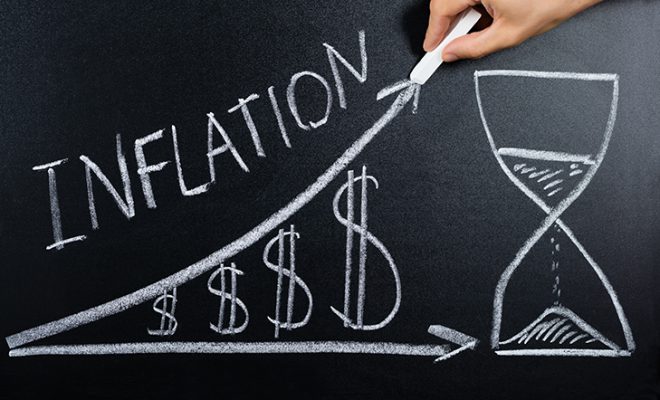What Is A 401K And How Does It Work?
How much money do I need to save for my retirement?
Is my retirement savings enough to lead a comfortable life?
Most people envision leading a comfortable life after retirement. However, it requires meticulous planning, investing at an early age, and managing funds wisely. Most people tend to neglect retirement plans when they’re young. However, time flies faster than we realize. If we don’t start early, saving for retirement can become more challenging down the line.
Life entails many unknown circumstances involving career, family, and health; however, amidst all this, it is equally essential to look after yourself before and after retirement and lead a secured life. When time is on your side, you must consider making the right investment decisions. One of these decisions includes contributing to a 401k plan that will help your retirement dreams become a reality.
Read this blog to uncover answers related to the 401k plan and know how to gain maximum returns to lead a happy retirement life.
Table of Contents
What is a 401k?
401k is an employer-sponsored retirement plan that lets employees contribute, save and invest some portion of their paycheck for their retirement. The plan benefits both the employee and the employer to get a tax deduction when the amount is directly deposited to a 401k account. Named after a section of the Internal Revenue Code, the 401k plan is a great way to build long-term wealth that can power you at your retirement and help you become financially secure. It is a reliable investment option because these contributions are deducted automatically on a pre-tax basis from the paycheck. If your employer offers a 401k plan, then you must consider opting for the same.
Here are a couple of important things you must consider about 401k plans:
- A 401k is a retirement plan and not a savings plan. So money put into this account is not easily accessible in case of an emergency.
- Do not postpone your intention to contribute to your 401K plan, even if it is two or four percent of your paycheck. Even small contributions to this account can bring about a big difference in the future.
- It is advisable to start a 401k account as early as possible and contribute a substantial amount.
- Read your retirement plan summary or description carefully. Most importantly, educate yourself and understand various investment options available and ask the right questions before signing off on any plan.
Key benefits of having a 401k
The 401k account has numerous tax benefits and offers unique advantages. Here are some benefits listed below:
- Tax benefits: Tax exemption is one of the primary interests when contributing money to a qualified retirement plan. It allows you to save tax until the amount invested is withdrawn. Since an individual is already in a lower tax bracket during his retirement years, the contribution is withdrawn during that time also attracts less tax.
- Easy investment options: A 401k plan is one of the easiest and hassle-free investment options to achieve a successful and happy retirement because it gets automatically deducted from the paycheck. If managed wisely an individual can enjoy an early and wealthy retirement. Also, it is important to take a measured approach to invest wisely to cover your short-term and long-term retirement goals.
- Employer matching contributions: Some employers may match and put the same amount you contribute towards your 401k plan, which is an excellent deal. In some cases, your employer might also offer some percentage of what you contribute. It is recommended to contribute the maximum amount to save for the future.
- Lifetime contributions: One of the advantages of having a 401k account is that it allows an individual to contribute funds as long as one is working. There are few investment instruments and retirement plans which have an age limit for contribution.
- Access to loans: While it is hard to withdraw any money from your 401k account while working, it is possible to borrow money from your account. The funds withdrawn can be deposited back into the account anytime in the future along with some interest components.
When should you start your 401k?
The answer to this is quite simple – as soon as you begin working and receive your first paycheck.
Saving for retirement might not be a top priority in the early twenties, but it is rewarding as it gives you enough time to maximize the power of compound interest. Saving in the first years of your career allows you to achieve your retirement goals easily so that you can handle the ups and downs in your life.
How much money should one save for retirement?
The answer is the same as above – as much as possible. You will need money to live, eat and pay for your medical expenses and also to maintain your day-to-day living, hence be mindful when saving money for your retirement.
Here are some tips to maximize your retirement savings if you start investing in your twenties:
- Start saving today: There could be numerous reasons for letting your expenses become an excuse however it is precisely the time you must consciously remind yourself about why you should save money now. One of the brilliant ideas is to keep saving at least 10 percent of your income and sign up for an auto-escalation each year to make saving your habit.
- Sign up for the 401k plan: Start your 401k account on day one of your employment and manage it effectively. Many people often become complacent with their existing saving plan, but it is essential to go through the 401k plan and its benefits.
- Opt for a Roth IRA: In case you aren’t eligible for a retirement fund at work that attracts matching contributions from the employer then it is the right time to sign up for a Roth IRA. Fund your Roth IRA monthly and stick to this routine of saving money. An interesting fact is that contributed money withdrawn from this account at retirement is entirely tax-free.
- Have a contingency fund: Create a plan to build an emergency fund so that you can take care of the uncertain expenses and eventualities in life. It is advisable to invest in some high-yield deposit so that you don’t end up using a credit card or retirement fund to fulfill the emergency. Ideally, you should maintain a contingency fund worth six months of your living expenses.
Make your journey to retirement a priority in life. No matter what your current age, it’s never too late to start a 401k plan to enjoy your retirement life with peace and security. The basic advice is to be proactive and aggressive in saving money and stop giving away your paycheck to someone else. It’s time to take action!


















